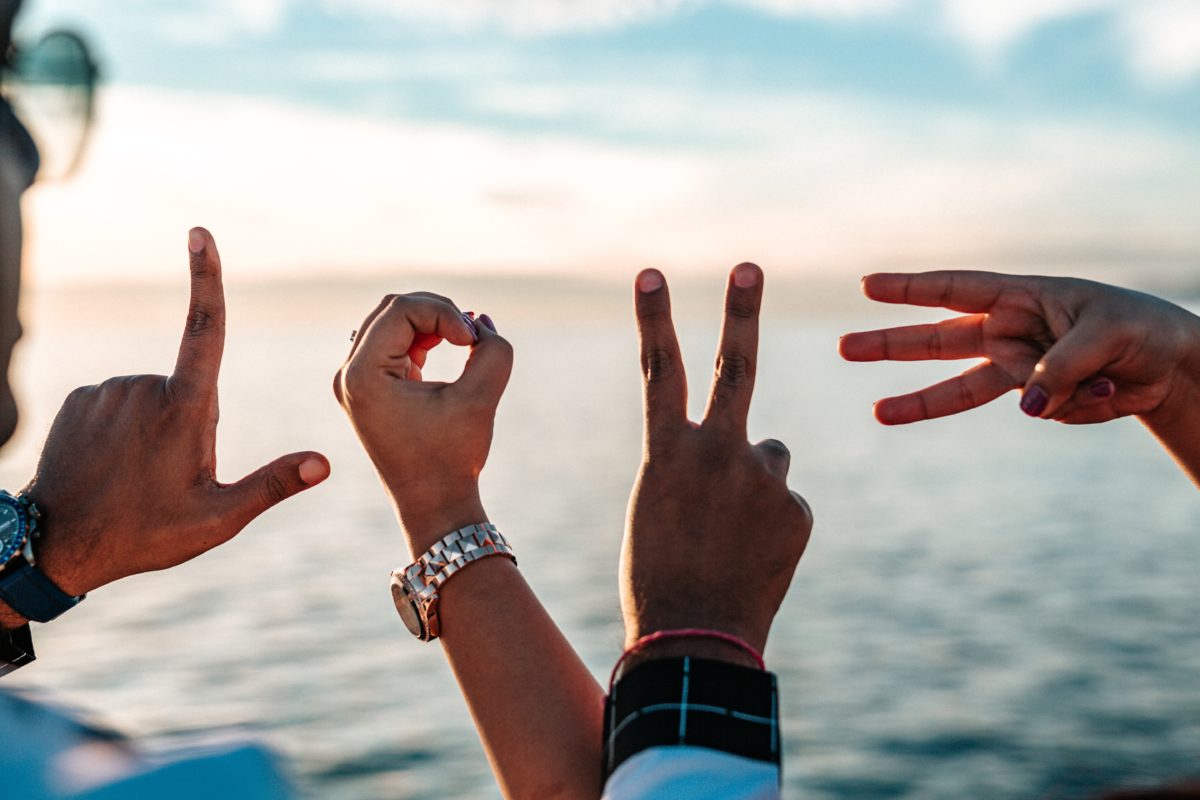It’s good to put other people first, consider how another person feels, and “get over yourself”, right? I mean, we’ve all heard that from self-help books, yoga teachers, therapists, parents, and friends. We know that being selfish is bad. Helping others is good even if it hurts.
But wait. We’re also told that you can’t help someone else if you can’t help yourself. We know to put the oxygen mask on ourselves first. We know we can’t give from an empty tank. We’re told not to be martyrs.
Be selfless! Take care of yourself! Two obvious truths that can’t both be true.
Dan Cacioppo, an esteemed researcher in social neuroscience, cautions us that many ‘self-evident truths’ are contradictory and not to be trusted. Social neuroscience is the interdisciplinary academic field devoted to understanding how biological systems implement social processes and behavior, and how these social structures and processes impact the brain and biology. In his research, Dr. Cacioppo has found over and over again that what we think we know about social interactions, health, well-being, and happiness is often inconsistent. We think we are independent of one another, each person a discrete entity with no actual connection to the other discrete entities around them. Yet, we are social creatures. We learn and adapt. We figure how how to get along with each other because, let’s face it, without cooperation humans would be a tasty snack on the food chain rather than lounging about at the top.
We depend on one another for our survival.
Depending on one another for our survival means that we depend on our communication skills, on our abilities to create bonds with the people around us that cause them to share food with us, nurture us, and house us especially when we are children. But even as adults we depend on one another. Without connection we feel lonely. Without meaningful social bonds, we suffer. Yet current culture in the United States and many developed countries tries to fly in the face of this need for connection.
Loneliness leads to early death more than air pollution, obesity, or excessive alcohol consumption.
We feel sad when we are lonely. What we don’t feel is that this loneliness is dangerous. We think it’s just about us. Something is wrong with me. I’m socially awkward. I don’t know how to talk to people. I get nervous at parties. I just moved. I’m out of place at my new job. I’m unfamiliar with this new town, where to go, and how to meet people. We make it personal.
Being lonely is not a sign that something is wrong with you.
It’s not personal. How can something that impacts the quiet, deep recesses of you as well as your outward social life not be personal? How can it not be a sign that something is wrong with you? It’s just a signal. It’s meant to be listened to. It’s meant to change our behavior.
Like hunger signals a need for food, loneliness signals a need for connection.
If you trust the signals of your body, you don’t go to a therapist when you are hungry. You eat. You don’t read a self-help book when you are thirsty. You drink. You don’t accuse yourself of inadequacy when you step on a splinter. You feel the pain and use it as a sign to pull out the splinter. You listen to the signal your body is sending and you adapt your behavior to address the legitimate need. Loneliness tells us that a legitimate and vital need is not being met. The need is connection. We are in danger without other humans who care for us, stand up for us, and want to be with us.
For many of us the link between the distress signal and the behavior change have been twisted and warped. We no longer trust that when we feel like eating, we’re hungry. Am I hungry or lonely? Am I hungry or am I do I want to feel happy like the people in the fast food ad? Am I hungry or can I skip this meal so I look more like the thin ideal our culture tells me is sure to make me more attractive (and less lonely)?
Loneliness is the same way. We aren’t sure if there is something wrong with us. We aren’t sure if we’re worthy of love and belonging. Brene Brown, self-described researcher, storyteller and Texan, has found in her research on shame that it is often linked to loneliness. Shame as she defines it is “the intensely painful feeling or experience of believing that we are flawed and therefore unworthy of love and belonging – something we’ve experienced, done, or failed to do makes us unworthy of connection. ” If we feel unworthy of love and belonging, we’re more likely to be lonely.
I love all of this. Shame. Vulnerability. Loneliness. Connection. Communication. Being with you exactly as you are. Getting curious with you about where you want to go and who you want to be. Being an advocate and confident on your journey. Being human is an adventure. One could even call it a hero’s journey. You are the hero of your own life. I get to be both the safe haven and warm arms to come back to to get a respite from the adventure, the cheerleader celebrating your victories and rallying your energy to try again, and the wise listening teacher who knows you are so wise and helps you see it.
